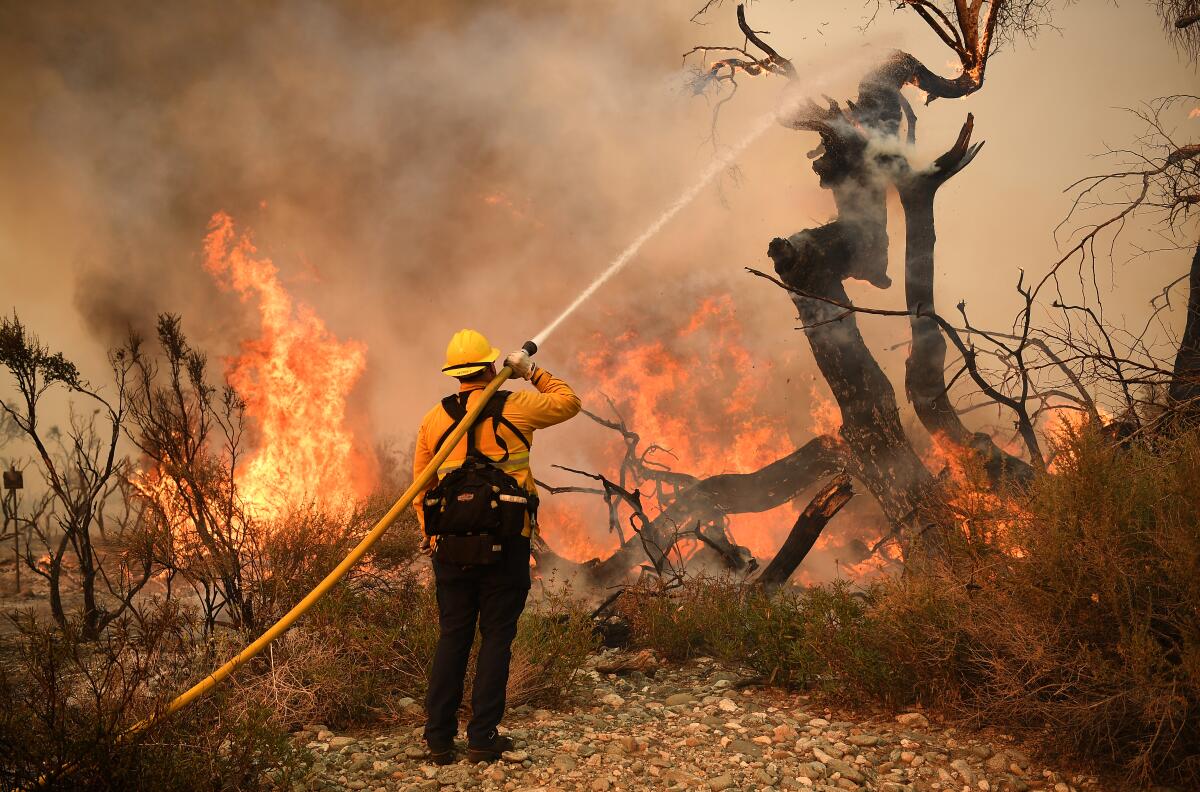Letters to the Editor: Why climate journalism needs to give readers a reason to hope

- Share via
To the editor: Rather than declare that the 2020 California wildfires essentially reversed 20 years of emissions reduction efforts in the state, The Times could have published an equally true article about how 20 years of emissions reduction efforts vastly mitigated the carbon emissions from the 2020 fires.
One version offers doom, the other hope. Media outlets often reflexively employ a posture of catastrophe when it comes to covering climate change. But human beings are not wired to absorb endless bad news without shutting down, checking out and feeling helpless.
You can still publish the truth, but you can do so in a way that gives people agency and hope. Do that, and your readers become partners in understanding and influencing the world for the better.
Ben Ripley, Los Angeles
..
To the editor: This is an example of how the climate crisis can have effects that are not only very damaging but also make climate change itself even worse. Because mitigation of climate change didn’t start long ago, the effect was to create more sources of climate change damage, in this case negating California climate efforts.
While California is trying to deal with the climate crisis, the situation may get worse nationally following our upcoming midterm election. We certainly should not let options for taking climate action be foreclosed, which may happen if the foes of climate change action take control of Congress, as recent polls indicate they might. This would thwart further urgently needed climate legislation.
We must protect against dire events such as the future flooding of coastal cities like New York, Miami and New Orleans. We must not leave a hostile future environment for all our children and grandchildren.
Jack Holtzman and Irwin Rubenstein, San Diego
..
To the editor: Things are bad, but not (quite) as bad as they appear at first glance. The acreage charred by wildfires in California in 2020 was nearly twice that of any other year, but 49% of that area was burned in fires sparked by two days of unprecedented lightning strikes.
If we don’t reduce greenhouse emissions, global warming will lead to increased storms that can make 2020 our new normal. Passage of Proposition 30 could help by reducing emissions while beefing up firefighting effectiveness.
Better yet, price greenhouse emissions. Many economists contend there is no faster or, in the long run, cheaper way to reduce emissions. There would be no bans or mandates. Charging the same fee to our trading partners would enlist the worldwide cooperation we need.
Tom Hazelleaf, Seal Beach




